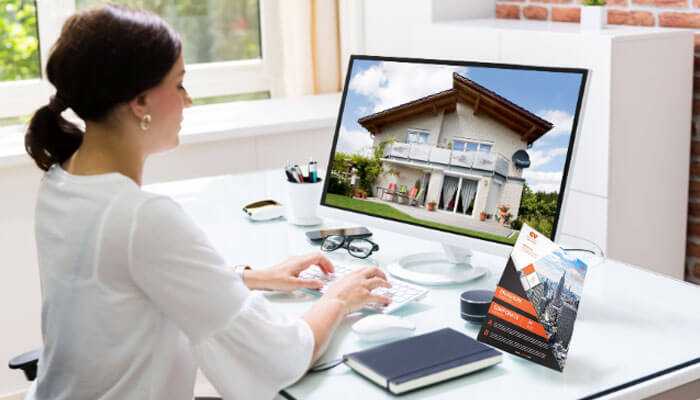In the fast-paced realm of real estate competition, making a strong first impression is crucial. Real estate brochure design plays a role in attracting buyers, providing a tangible sneak peek into various properties and projects. As design trends evolve continuously, real estate experts must keep abreast of the updates. This piece delves into the trends in real estate brochure design, aiming to captivate and convey messages with impact effectively.
Embracing Minimalism
Real estate brochure design today values simplicity as a force to capture attention effectively and create an impact on viewers’ minds without overwhelming them with details and cluttered content. Here is a quick guide to real estate brochures and their must-have features.
Engaging Features
Adding visual elements to real estate brochure design can really increase engagement levels. Features such as QR codes and augmented reality with links give users the chance to explore property information more thoroughly and in a more engaging manner than before. When someone scans a code on the brochure, they can enjoy virtual tours and check out more pictures and videos depicting the property up close and personal. These interactive features provide a user experience that offers an enriched perspective of the property, which regular images just can’t match.
Sustainable Design Practices

Being mindful of the environment is crucial in today’s world. Pamphlets that highlight eco-friendly initiatives attract consumers. Selecting materials and using inks while also embracing digital formats shows a dedication to sustainability. This not only appeals to clients who are environmentally aware but also presents the developer or real estate agent in a positive light by demonstrating forward-thinking values.
Expressing Narratives Using Visual Elements
In real estate brochures, the power of pictures is crucial. Great images that truly represent a property can heighten interest. When combined with vivid descriptions, these images weave a captivating story. A well-crafted narrative guides prospective buyers and helps them see themselves living in the property. By showcasing the lifestyle features and local community, the brochure transforms from a marketing tool into a journey for potential buyers to explore.
Tailored Material
During this era of personalization, taking the lead, having high importance levels, and tweaking information in brochures can make a property stand out. Tailoring data according to audience profiles guarantees relevance and attractiveness. For example, a brochure targeting a family neighborhood may spotlight schools and parks, whereas a high-end apartment brochure could showcase luxury amenities. Customization plays a role in establishing a bond with the readers, boosting the chances of receiving a positive reaction.
Typography and Fonts
Fonts are really important when it comes to designing brochures because they impact how easy it is to read them, and they set the tone for the look and feel of the brochure. A popular trend nowadays is to use simple fonts without accents because they give off a sense of clarity and sophistication. Choosing the typography carefully can make the whole design look more polished and professional while also making sure that the brand identity shines through across all materials. It’s an idea to stick with a font style for all your content to keep things cohesive and make sure your message hits home with potential customers.
Media
Although traditional brochures are still widely used today, digital formats are gaining traction for their ease of access and convenience. Electronic brochures can be shared through email or social media, reaching an audience quickly. Moreover, they provide the benefit of incorporating multimedia features, like video tours or interactive maps of locations, in a society that heavily depends on technology—adopting such formats guarantees that marketing strategies are up-to-date and successful.
Consistency in Branding
Having a brand identity, especially global branding, plays an important role in building trust and recognition among consumers. Brochures that showcase unified elements like logos, color palettes, and messaging contribute to a brand image. This uniformity should be maintained across all marketing platforms, ranging from websites to social media content. A defined and easily identifiable brand inspires confidence in buyers, increasing their willingness to interact with the product or project.
Summary
Keeping up with the trends in designing real estate brochures can impact marketing success. To make brochures more effective, it’s important to embrace minimalism and add elements while also focusing on sustainability. Telling a story with personalized content and maintaining branding can enhance their attractiveness even more. As the industry changes over time, follow these trends to keep brochures to attract and engage buyers.



